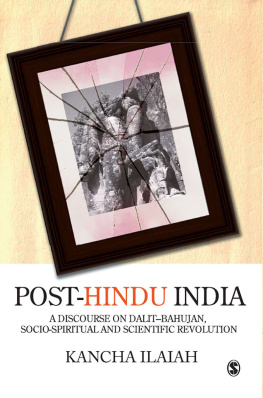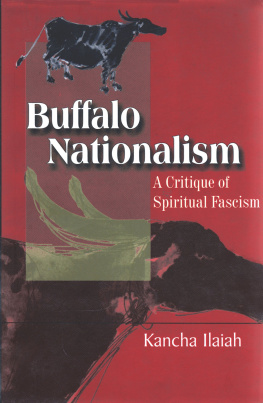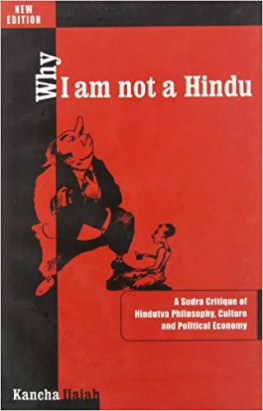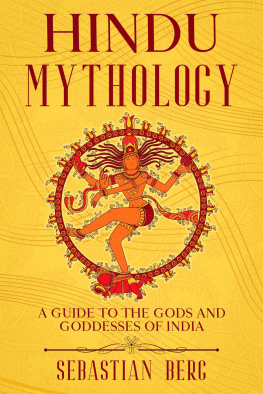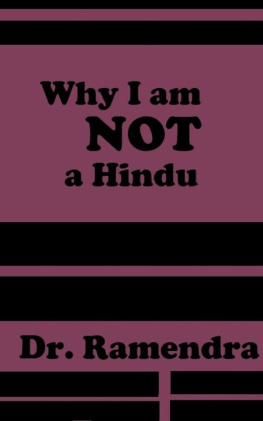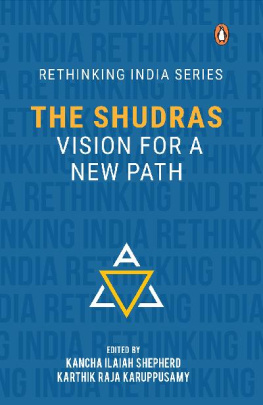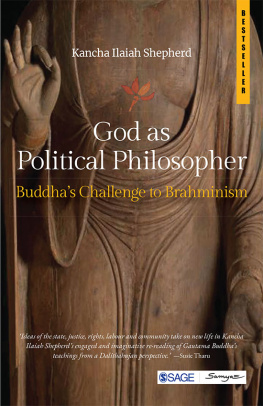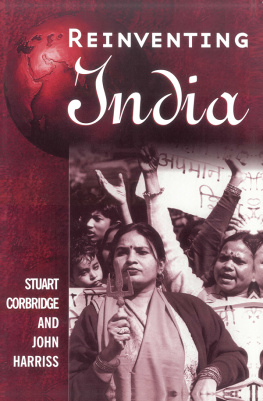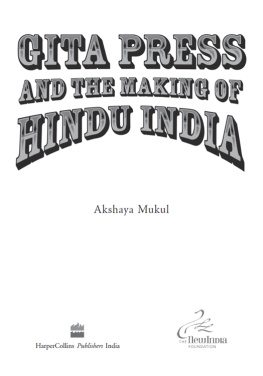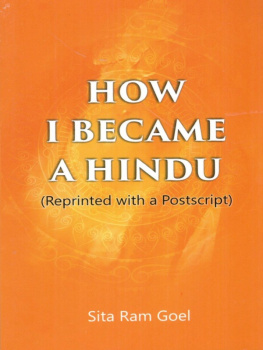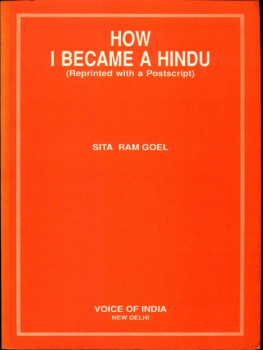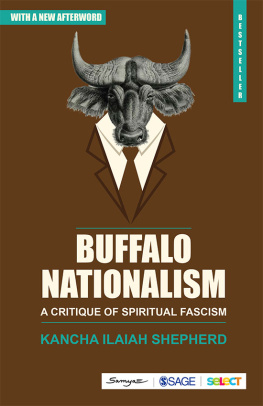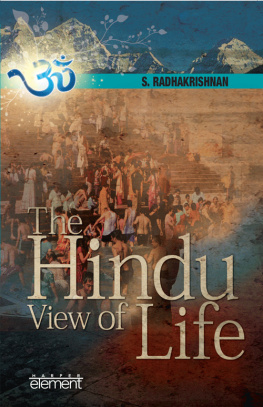Kancha Ilaiah - Post-Hindu India
Here you can read online Kancha Ilaiah - Post-Hindu India full text of the book (entire story) in english for free. Download pdf and epub, get meaning, cover and reviews about this ebook. year: 2009, publisher: SAGE Publications, genre: Religion. Description of the work, (preface) as well as reviews are available. Best literature library LitArk.com created for fans of good reading and offers a wide selection of genres:
Romance novel
Science fiction
Adventure
Detective
Science
History
Home and family
Prose
Art
Politics
Computer
Non-fiction
Religion
Business
Children
Humor
Choose a favorite category and find really read worthwhile books. Enjoy immersion in the world of imagination, feel the emotions of the characters or learn something new for yourself, make an fascinating discovery.
- Book:Post-Hindu India
- Author:
- Publisher:SAGE Publications
- Genre:
- Year:2009
- Rating:3 / 5
- Favourites:Add to favourites
- Your mark:
- 60
- 1
- 2
- 3
- 4
- 5
Post-Hindu India: summary, description and annotation
We offer to read an annotation, description, summary or preface (depends on what the author of the book "Post-Hindu India" wrote himself). If you haven't found the necessary information about the book — write in the comments, we will try to find it.
Post-Hindu India — read online for free the complete book (whole text) full work
Below is the text of the book, divided by pages. System saving the place of the last page read, allows you to conveniently read the book "Post-Hindu India" online for free, without having to search again every time where you left off. Put a bookmark, and you can go to the page where you finished reading at any time.
Font size:
Interval:
Bookmark:
Post-Hindu India
Post-Hindu India
A Discourse on DalitBahujan, Socio-Spiritual
and Scientific Revolution
Kancha Ilaiah

C opyright Kancha Ilaiah, 2009
All rights reserved. No part of this book may be reproduced or utilized in any form or by any means, electronic or mechanical, including photocopying, recording or by any information storage or retrieval system, without permission in writing from the publisher.
First published in 2009 by

SAGE Publications India Pvt Ltd
B1/I-1 Mohan Cooperative Industrial Area
Mathura Road, New Delhi 110 044, India
www.sagepub.in
SAGE Publications Inc
2455 Teller Road
Thousand Oaks, California 91320, USA
SAGE Publications Ltd
1 Olivers Yard, 55 City Road
London EC1Y 1SP, United Kingdom
SAGE Publications Asia-Pacific Pte Ltd
3 Church Street
#10-04 Samsung Hub
Singapore 049483
Published by Vivek Mehra for SAGE Publications India Pvt Ltd, typeset in 10/12pt Goudy Old Style by Star Compugraphics Private Limited, Delhi and printed at Chaman Enterprises, New Delhi.
Library of Congress Cataloging-in-Publication Data
Ilaiah, K. (Kancha), 1952
Post-Hindu India : a discourse on DalitBahujan, socio-spiritual, and scientific revolutio n / Kancha Ilaiah.
p. cm.
1. HinduismSocial aspectsIndia.2. BrahmanismSocial aspectsIndia.3. DalitsSocial conditions.I. Title.
BL1215. S64I53294.508694dc2220092009032026
ISBN: 978-93-5280-197-8 (ePub)
The SAGE Team: Rekha Natarajan, Sushmita Banerjee, Mathew P. J. and Trinankur Banerjee
For,
The God who created all human beingsmen and womenequal
and in his likeness; prophets who taught and practised equality
Buddha, Jesus, Muhammad, Marx and Ambedkar; and
my mother and father who were born unequal, lived unequal
and illiterate, and, died unequal.
Publishers Note
In this book the readers would come across many coinages such as meatarianism, orature, and so on. These words have been used by the author, given his unique methodology and subtleties of argument. The publishers have not interfered with the unconventional narrative structure of this book. Digna con utem zzriusto consequi eniatio odolore tie feugiam, vendiatet, summy nos nulputate dolorpero eum volobortie facilisit exeriuscin vulluptat.
An euguer si. Adigna feugiam vent praestis del dionseq uipismolor si. Giam iure veliqua tionsequisis nullan ute duipisl delit ip etum nonsequam ipsusci lismolor incilla conse mod molorpe raesequ ismodip eu faciliquis
Thank you for choosing a SAGE product!
If you have any comment, observation or feedback,
I would like to personally hear from you.
Please write to me at
Vivek Mehra, Managing Director and CEO, SAGE India.
Bulk Sales
SAGE India offers special discounts
for purchase of books in bulk.
We also make available special imprints
and excerpts from our books on demand.
For orders and enquiries, write to us at
Marketing Department
SAGE Publications India Pvt Ltd
B1/I-1, Mohan Cooperative Industrial Area
Mathura Road, Post Bag 7
New Delhi 110044, India
E-mail us at
Get to know more about SAGE
Be invited to SAGE events, get on our mailing list.
Write today to
This book is also available as an e-book.

Contents
The social masses, who have lived as oppressed castes and communities, suffering for centuries at the hands of the culture of caste, superstition and exploitationand whose very suffering became the source of this bookI thank them immensely for accepting me as one of them, and sharing their knowledge and experiences.
And, of course, the DalitBahujan movements that have sustained my interest in life and work. I thank all those who are involved in these enduring movements. I thank all my friends for their unsparing criticism of the draft of this book. I have always believed that a good friend is one who, while sharing my broad ideology, does not hesitate to rip apart the bad arguments I tend to develop in any of my writing. Many of my friends helped me in finessing my arguments. My students also gave significant inputs which helped me in writing this book. I thank them all .
I would like to sincerely appreciate the assistance that I got from the SAGE team. Sugata Ghosh, Vice President, Commissioning persuaded me to give this book to SAGE and Rekha Natarajan and Sushmita Banerjee diligently worked on this book to bring it to its present form.
Finally, I thank my family members, who shared the burden of day-to-day life while I was working on this book for more than a decade. Since I am not married, I stay with my brothers family in a small urban apartment. My brother underwent a heart valve replacement surgery 30 years ago, so he falls sick quite often. However, he is able to cope up with life because of the assistance from family members. I am thankful to God for having let me be born in this country, in this wonderful family and for assigning me the job of teaching, reading and writingthat too in English.
MAPPING THE SUICIDAL COURSE OF HINDUISM
This book was born out of a gut feeling that the Indian nation is on the course for a civil war; a civil war that has been simmering as an undercurrent of the caste-based cultural system that Hinduism has constructed and nurtured for centuries. The Hindu cultural system is slowly unveiling its self-destructive contradictions, creating tensions in every layer of the caste society. This book covers a wide range of DalitBahujan cultural, scientific and economic knowledge systems, analyses their overall relationships with each other and also with the Hindu religion as a spiritual system. It establishes that Brahmanical Hinduism adopted an anti-production and anti-scientific ethic, compared to the scientific, technological and productive knowledge systems that the DalitBahujan communities have developed and nurtured over the years.
The social, spiritual, economic and educational deprivation imposed on the DalitBahujan castes by the Hindu religious institutions have led, to the organization of different DalitBahujan castes and an articulation of their ideological positions, thereby brewing up tensions. The tensions between the lower and the upper castes are leading to clashes on an everyday basis. On one hand, the spiritual and political aspirations of historically deprived castes and communities are increasing, leading to the expansion of spiritually democratic religions like Christianity, Buddhism and Islam. On the other hand, new political parties are shaping up to fight the hegemony of the upper castes. Thus, the hunger of DalitBahujan castes for powerwhether spiritual, political or socialhas set the stage for a war of power, of nerves, and also of weapons. These multiple processes have created a degree of tension that might explode into civil war at the slightest provocation. This book aims to highlight the contradictions within the caste layers and map the future course of the Indian nation. It aims to show how the Hindu religion, which is one of the worlds four major religions, is on the course of a slow but sure death because of these processes. It is a demise that would reposition the cultures of the world in a major way. It would be impossible to predict how the post-Hindu India would shape up. What this book does however, is dissect the body of the Hindu cultural system and expose the fatal nature of the caste cancer that it has created within itself, show how it is unwilling to undergo a modern medical surgery, leading, consequently, to its suicide. It is a self-constructed disease with a self-determined course.
Next pageFont size:
Interval:
Bookmark:
Similar books «Post-Hindu India»
Look at similar books to Post-Hindu India. We have selected literature similar in name and meaning in the hope of providing readers with more options to find new, interesting, not yet read works.
Discussion, reviews of the book Post-Hindu India and just readers' own opinions. Leave your comments, write what you think about the work, its meaning or the main characters. Specify what exactly you liked and what you didn't like, and why you think so.

